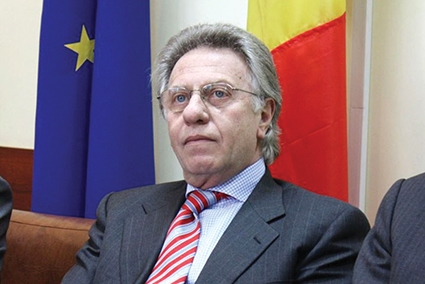Venice Commission to Mediate Dialogue between Georgian Ruling Party & Opposition
The Venice Commission is ready to organize a meeting in Strasburg on September 6, in order to facilitate dialogue between the Georgian ruling party and the opposition over the controversial amendments to the Constitution.
The letter of the Venice Commission Head Gianni Buquicchio with the offer to meet in Strasburg was sent to the Parliament Speaker and opposition parties. It reads that the Commission is looking for consensus over the issue.
The initiative of holding a meeting in Strasburg was raised by the nine non-parliamentary opposition parties of Georgia. The political union, Free Georgia, composed of these nine parties sent a letter to Buquicchio on July 25, which introduced the situation to the Venice Commission regarding the constitutional reform process and asked them to organize a meeting.
The Chair of Free Georgia, Kakha Kukava, says that the Venice Commission's proposal is a serious chance to exert pressure on the government to suspend the review of the constitutional amendments adopted in the second reading.
The parliamentary opposition parties, the United National Movement (UNM) and European Georgia, are going to take part in the meeting in Strasburg.
“If the ruling party adopts this version of constitution, this will be a one-party document and a step backwards for the democratic development of Georgia,” Zaza Bibilashvili from the UNM stated.
European Georgia member Irakli Abesadze says that the meeting in Strasburg will be fruitful if the ruling Georgian Dream (GD) party decides that the wish of Georgian society has to be reflected in the main document of the country.
GD says they will join the meeting, however, they do not specify if they will compromise their position or not.
“We compromised on many issues. Consensus with the opposition can be reached at this meeting,” Archil Talakvadze, parliamentary majority leader, said.
Georgian Dream adopted the proposed changes to the country’s main law, the Constitution, with its second reading in late June.
Parliament will return to discussing the draft law after three months, as three readings are mandatory for the final adoption of a law in Parliament.
The amendments, among many important changes, include a delay to the full move to a proportional election system, as well as indirect presidential elections until 2018.
GD promised a move to a proportional system prior to the 2012 parliamentary elections. The majority stated after consultations with the opposition parties, NGOs and the Venice Commission that the changes would take place before the 2020 parliamentary elections. However, according to the adopted changes, this will now happen no earlier than 2024.
Georgia has a mixed electoral system, with 77 lawmakers elected through proportional elections and the remaining 73 via a majoritarian race.
Thea Morrison












